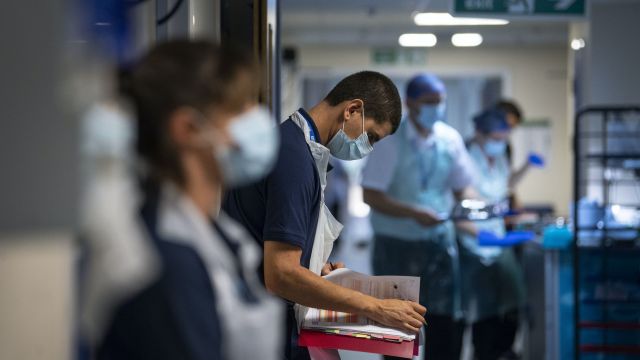The clinical trial, led by scientists at University College London (UCL), will evaluate the use of real-time viral genomic data to reduce the spread of Covid-19 within hospitals.
The findings could help the NHS reduce further transmission by determining if an individual caught the virus from someone else within the same hospital, researchers say.
By sequencing Covid-19 viruses rapidly, we hope to establish how hospital staff and patients became infected
Professor Judith Breuer, director of UCL/UCLH/GOSH biomedical research centres funded pathogen genomics unit (PGU/UCLG), and trial lead, said: “Spread of Covid-19 infections in hospitals is now recognised to be a major problem for both healthcare workers and patients, and breaking the chain of these transmissions is critical.
“Tried and tested procedures to minimise infection spread in hospitals are already in use, including separating Covid-19 infected patients from uninfected patients, extensive cleaning, the use of PPE, and continual hand washing.
“Despite these measures, Covid-19 transmission to patients and staff is still occurring and has sadly proven fatal.
“So it is essential that we try out new tools such as viral sequencing to find out why this is happening and to help reduce hospital spread.”
The study, together with the UCL comprehensive clinical trials unit (CCTU), forms part of the Government’s £20 million Covid-19 Genomics UK Consortium (Cog-UK) which allows scientists to map the virus’ spread across the country.
The COG-UK Hospital Onset Covid-19 Infection (HOCI) trial will involve more than 15 hospitals linked to COG-UK sequencing hubs across the UK.
Each site will analyse the Covid-19 sequences in nasal and throat samples from all known coronavirus patients in the hospital, along with newly infected hospital patients and frontline NHS staff.
The trial will evaluate whether results from whole virus genome sequencing of all Covid-19 samples, which are now available within 24-48 hours, reduces the number of hospital outbreaks compared with standard methodologies.
Specifically, the data is likely to enable clinical teams in each hospital to see if newly infected patients have picked up the virus from a known positive patient within the hospital, or from outside the hospital.
Prof Breuer added: “We already know that comparing the sequence of letters that make up one Covid-19 virus genome with the sequence of letters from Covid-19 in another sample, can tell us whether the two viruses are the same or different.
“Therefore by sequencing Covid-19 viruses rapidly, we hope to establish how hospital staff and patients became infected.
“This will allow hospitals to put effective measures in place faster, to try to interrupt onward transmission of the virus and reduce the number and size of outbreaks.
“Such measures might include more regular deep cleans, checking and double-checking the effectiveness of PPE equipment, and moving other vulnerable patients out of the hospital entirely to another setting.”
Covid-19 viruses that are closely related, transmitted from one patient to another or to a healthcare worker, will have the same sequence.
While viruses from two people that have different sequences will rule out the possibility of transmission between patients or healthcare workers.







